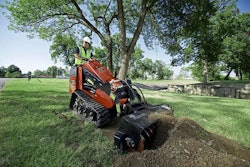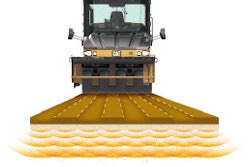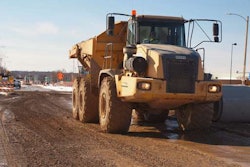 Tina Grady Barbaccia,
Tina Grady Barbaccia,Editor-At-Large
[email protected]
The current proposed regulation that would change the definition of the “waters of the United States” and expand federal regulations to cover other wet areas in the country – including roadside ditches – could be extremely detrimental to the highway and bridge building transportation industry.
The proactive measures taken by the American Road & Transportation Builders Association (ARTBA) to submit comments to the U.S. Environmental Protection Agency (EPA) and Army Corps of Engineers opposing this legislation is important to note and should serve as a call to action within the construction transportation community to support the association’s efforts. (Read more on the proposed legislation here.)
ARTBA noted to the government agencies that “roadside ditches are not, and should not be regulated as traditional jurisdictional wetlands since they are an essential part of any transportation improvement project and contributed to the public health and safety of the nation by dispersing water from roadways.”
If the proposed legislation is signed into law, it would not only hinder our transportation efforts throughout the nation but could severely hinder improving our already crumbling infrastructure system. The ditches used on the roadways are essential for drainage and are should not be considered as part of traditional wetlands. I agree with ARTBA: There needs to be reasonable protection of environmentally sensitive wetlands with polices that balance preservation as well as economic realities and public mobility requirements. That’s why it is so important to ensure that the definition of wetlands is not overly broad and ambiguous.
There needs to be a definition that protects environmentally sensitive areas but still allow for necessary transportation growth. The U.S. Supreme Court was asked to decide in Rapanos vs. United States whether the Clean Water Act (CWA) allowed the Army Corps of Engineers to regulate “isolated wetlands” that have not connection with “navigable waters” or if there is even a minimum standard should be applied.
The proposed rule would allow for aggregation of the contributions of all similar waters “within an entire watershed.” This would create a blanket jurisdiction, according to ARTBA, which means the EPA Army Corps of Engineers could regulate the entire watershed. This is a problematic, the association says, because broadening this jurisdiction “would literally leave no transportation project untouched regardless of its location” because there is no area in the United States that isn’t linked to at least one watershed.”
I agree that there are certainly times where it is absolutely appropriate where a permit may be necessary – or even required – to determine the impact of transportation construction. However, I agree with ARTBA that these need to be evaluated on a case-by-case basis to determine environmental benefits and/or impacts. (For full comments from ARTBA on the “Waters of the U.S. proposed legislation,” go to artba.org/government-affairs/regulatory.)
Will you lend your support in opposing this potential legislation?











